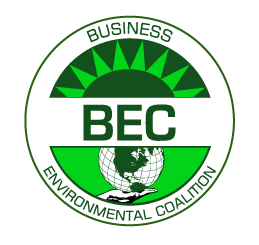Insert code for this page here
| What is the Jenga Business Checkup, and how does it help my business? | |
| What does Business Turnaround involve? | |
| What is Business Process Reengineering? | |
| What can Custom Consulting do for my business? | |
| How can BEC improve my sales team's performance? | |
| How can I assess my regulatory compliance risk? | |
| When does my business need a turnaround? | |
| How does sustainability boost my bottom line? | |
| How does BEC address AI in business operations? | |
| How do I begin working with BEC? | |
| Q: | What is the Jenga Business Checkup, and how does it help my business? |
| A: | Our flagship Jenga Business Checkup is a holistic assessment of your operations, compliance, and sustainability. With a top to bottom review of your operations, we uncover hidden risks and inefficiencies from IT, Customer Service, workflows, and regulations like SB-1383, delivering a tailored plan to strengthen your business foundation, mitigate fines associated with regulatory compliance, and integrate sustainable measures to reduce costs and boost your bottom line. It’s ideal for businesses seeking a comprehensive review to uncover hidden problems and drive growth. |
| Return to top | |
| Q: | What does Business Turnaround involve? |
| A: | Business Turnaround is our triage-driven solution for struggling businesses, rapidly prioritizing critical issues to stabilize operations. We bring fresh eyes, and a process management approach. We diagnose operational gaps, eliminate inefficiencies, and restructure workflows to cut waste and restore profitability. Our Lean systems ensure smooth implementation without disrupting your operations, guiding you toward a revitalized business. |
| Return to top | |
| Q: | What is Business Process Reengineering? |
| A: | Business Process Reengineering is a proactive, comprehensive overhaul of your systemic processes, unlike Business Turnaround solutions which are more urgent. We thoughtfully redesign workflows, including business plan reviews and system processes, to drive sustained growth, to help you steer your business deliberately into the future. It’s perfect for businesses planning long-term success or retooling operations. |
| Return to top | |
| Q: | What can Custom Consulting do for my business? |
| A: | Custom Consulting provides flexible support, from hourly workshops to retainer-based plans, tailored to your unique requirements. Whether it’s compliance training, website evaluation, sustainability integration, or sales team development, we craft a plan to integrate your specific operational needs. |
| Return to top | |
| Q: | How can BEC improve my sales team's performance? |
| A: | Our sales training sharpens your team’s skills through personalized coaching and a question-based approach, delivering stronger customer relationships, shortened sales cycles, and higher closing ratios. We also provide sales management tools to motivate your team and drive collaborative, results-focused performance, boosting your sales system and business growth. |
| Return to top | |
| Q: | How can I assess my regulatory compliance risk? |
| A: | Regulatory compliance gaps can lead to costly penalties across OSHA, RCRA, DOT, or numerous state, local, and federal regulations. Our free OSHA Compliance Calculator helps you identify exposure to workplace safety standards, while the California SB-1383 Walkthrough Challenge uncovers gaps in meeting this exacting environmental regulation. Use these tools to assess vulnerabilities and feel free to contact us for further compliance support. |
| Return to top | |
| Q: | When does my business need a turnaround? |
| A: | Signs like declining profits, operational chaos, or rising costs signal the need for urgent action. Our Business Turnaround diagnoses these issues with fresh eyes, cutting waste to restore profitability. Contact us to see if it’s time for a turnaround. |
| Return to top | |
| Q: | How does sustainability boost my bottom line? |
| A: | Sustainable practices cut costs and ensure compliance, from reducing waste to meeting regulations like SB-1383. Our Jenga Business Checkup and Custom Consulting integrate sustainability to drive profits. Contact us to make sustainability work for you. |
| Return to top | |
| Q: | How does BEC address AI in business operations? |
| A: | Every business has unique AI needs, from streamlining processes to enhancing data insights. We assess your operations and discuss tailored AI opportunities, drawing on our tech expertise to boost efficiency and growth |
| Return to top | |
| Q: | How do I begin working with BEC? |
| A: | Every business is unique, so let’s start with a conversation to better understand your needs. Whether you’re interested in Jenga, Turnaround, or a custom solution, simply reach out to discuss how we can strengthen your business. |
| Return to top | |
Content cannot be used without their prior express written permission.

